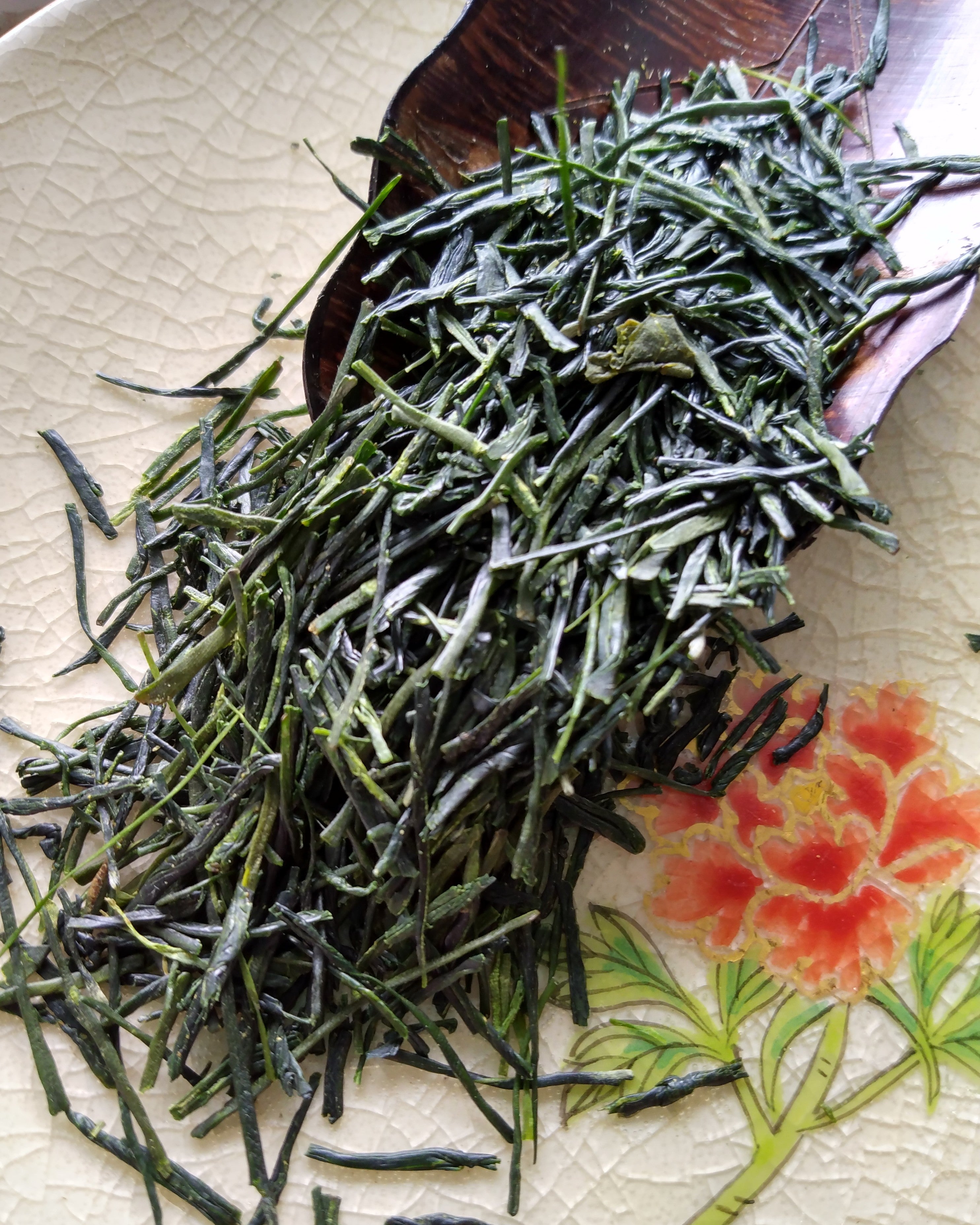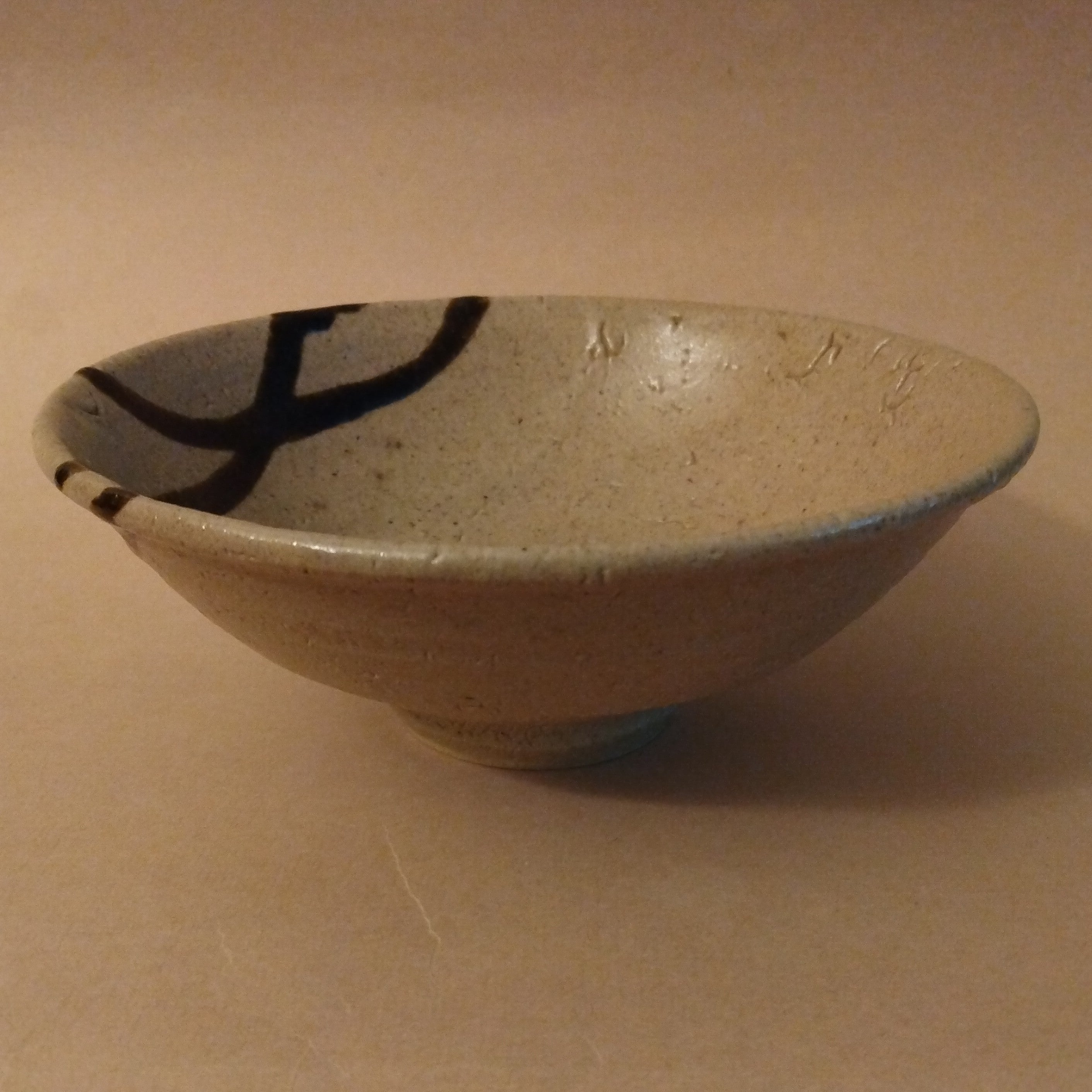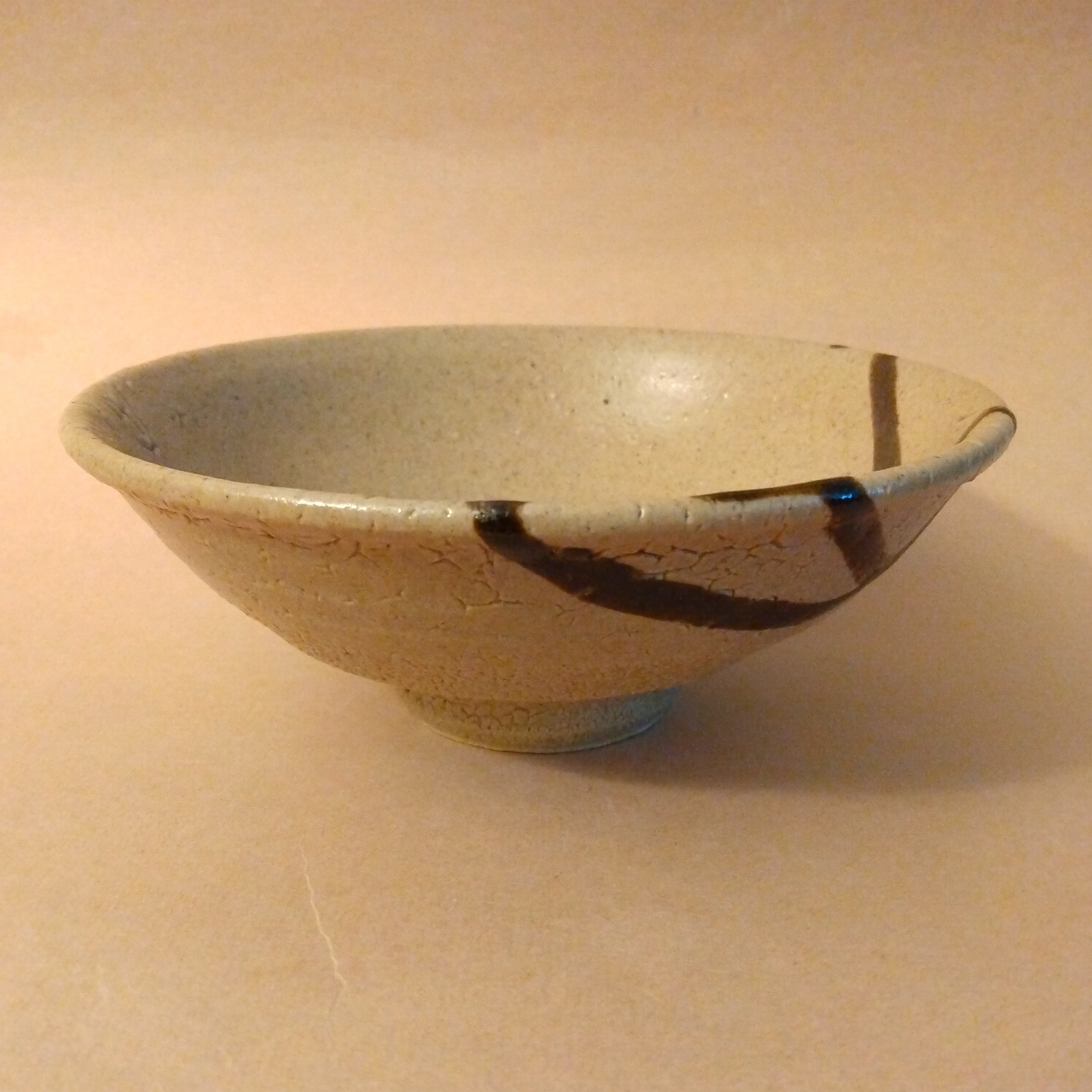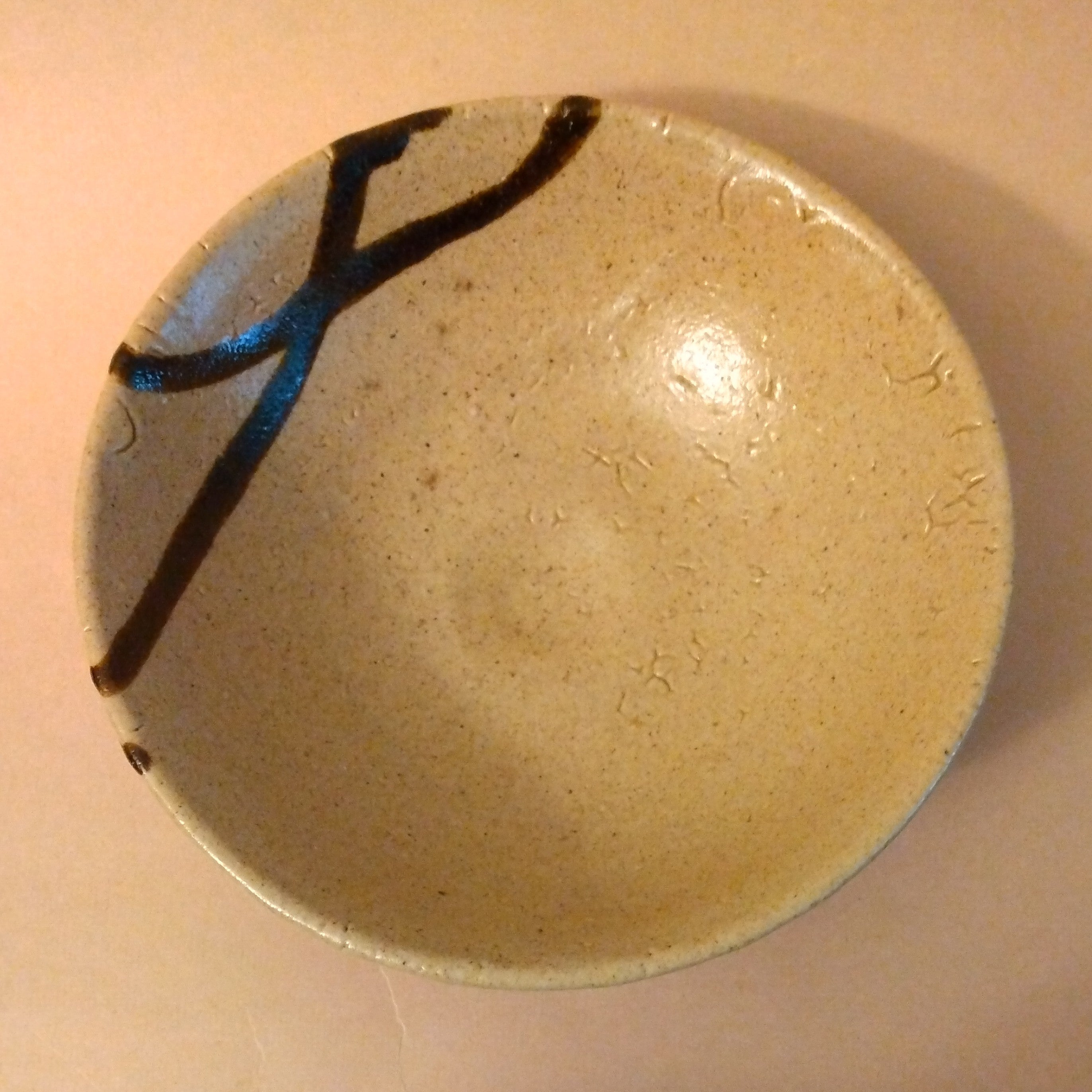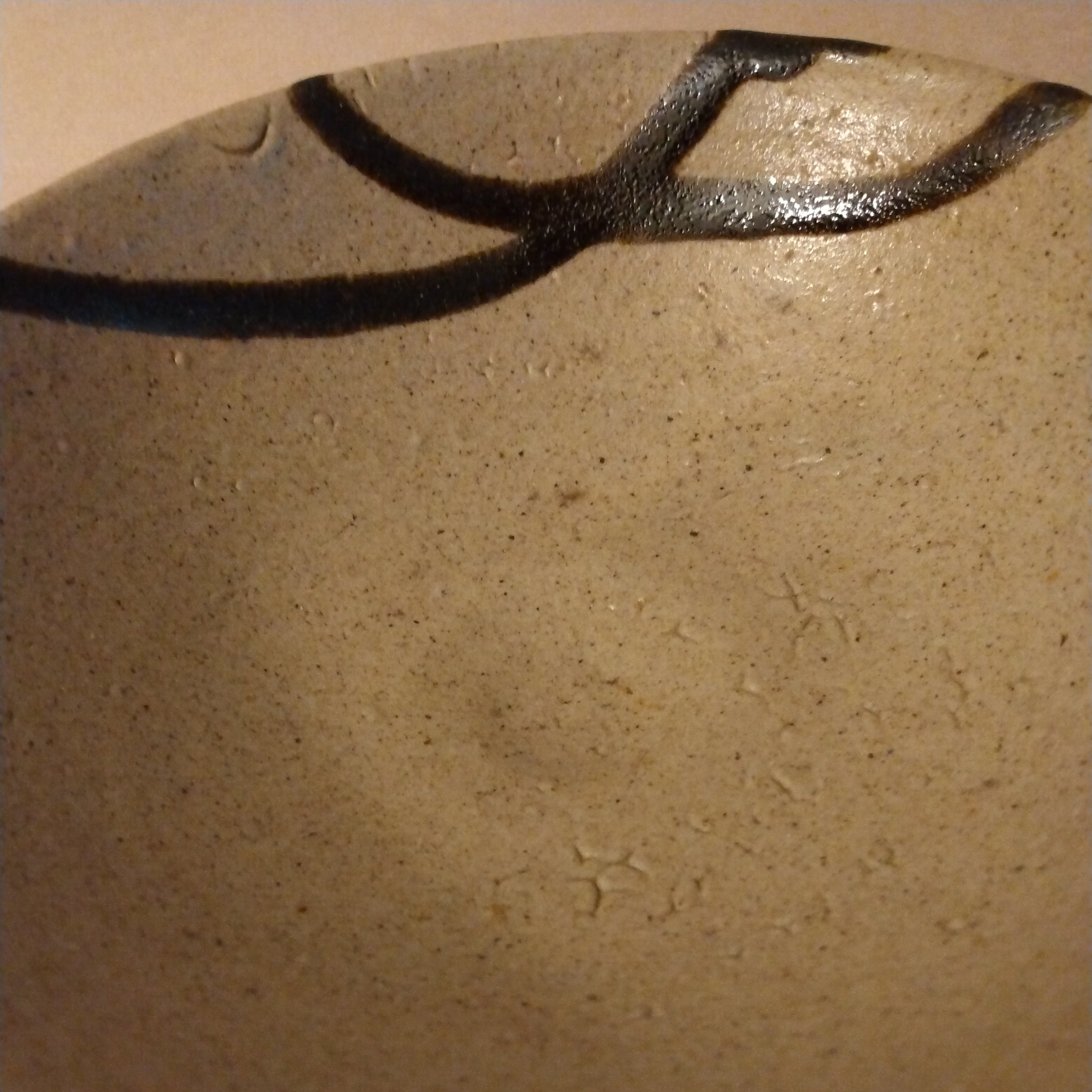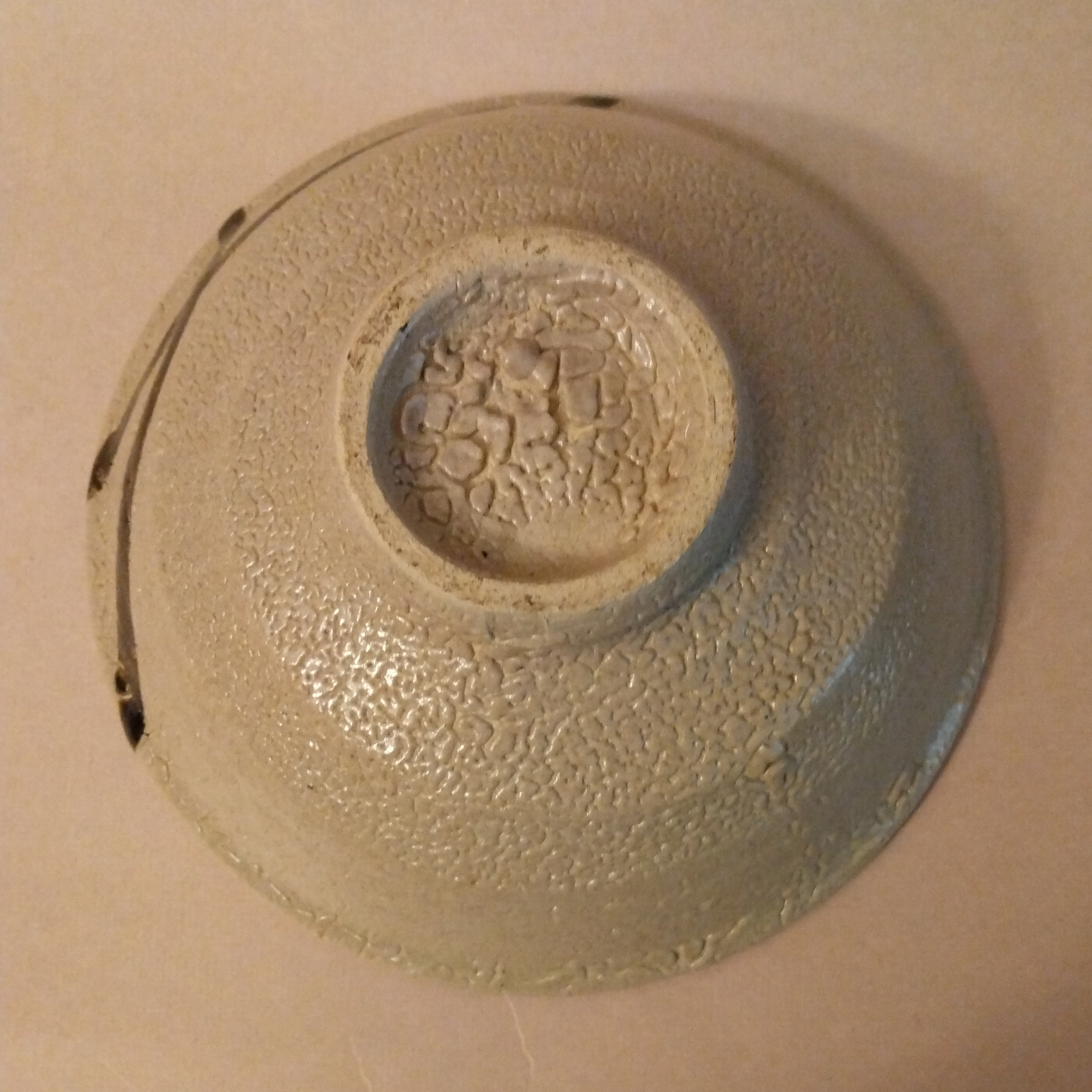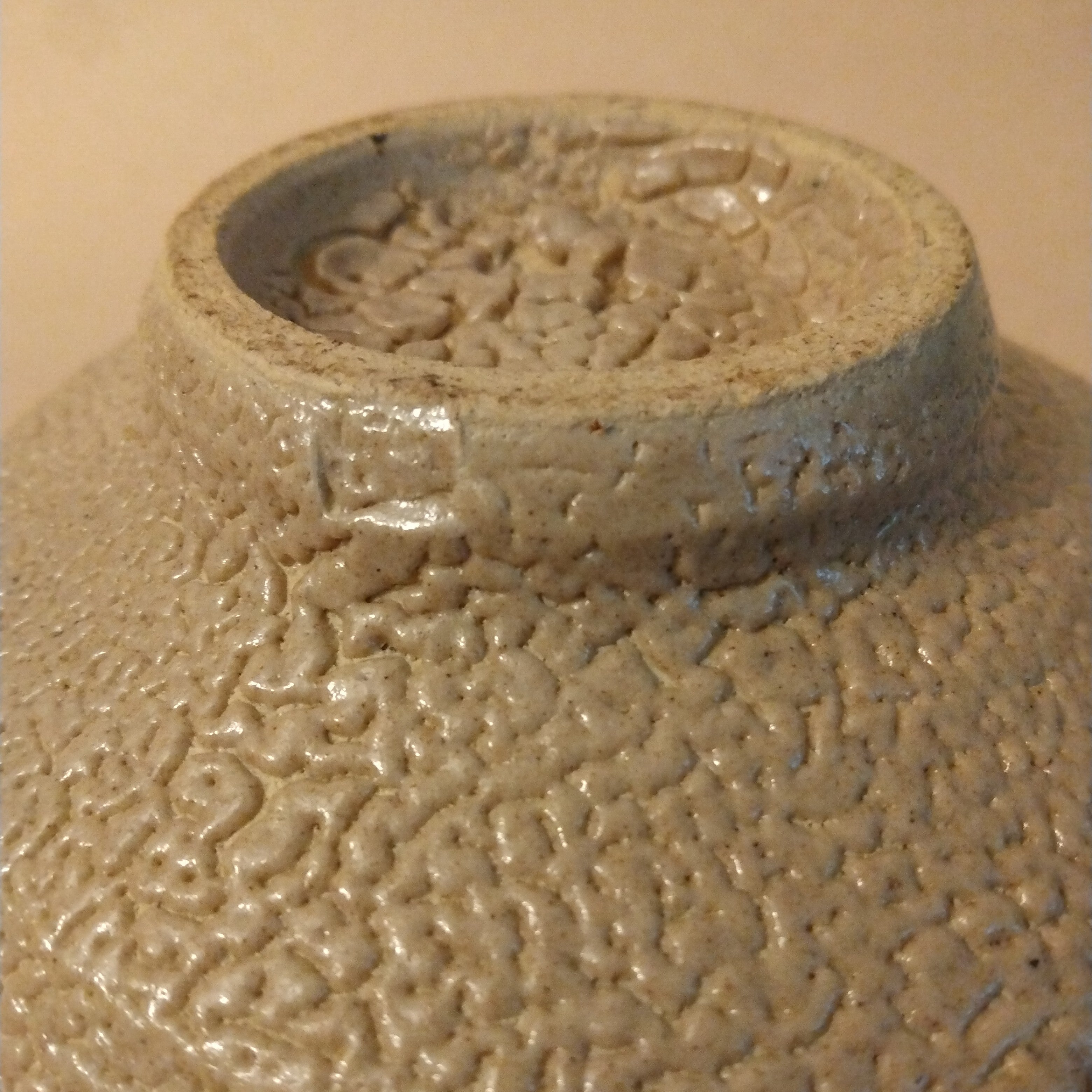Description
Matcha Chawan, Tea Bowl, by Daisei Kiln, Mashiko. H. 2.625"(6.5cm) x Dia. 6.625"(16.75cm). Weight 359 grams. This Hirachawan (wide tea bowl) or Natsujyawan (summer tea bowl) has a wide shape, ideal for slightly cooling tea in summer but fine for year-round use. It has a rich Nuka (rice husk ash) glaze that crawls nicely (kairagi). Two overlapping bands of iron the interior and exterior lip and shoulder areas on one side of the bowl. Nuka glaze has been been one of the traditional glazes in the Mashiko palette. The iron bands give it a somewhat modern design in this example of a well-made tea bowl from the Daisei Kiln. The Daisei Kiln has been operated by the Ootsuka family in Mashiko for seven generations now. They go back to the late 1800's and are deeply entrenched in the pottery history of Mashiko.
The town of Mashiko is located about 70 miles northwest of Tokyo, in Tochigi Prefecture. Although there is evidence of pottery manufacture in the region of Mashiko as far back as the 8th century; production in the modern age began in 1853, making it a relatively young pottery center by Japanese standards. However, whereas many traditional pottery towns disappeared when Japanese lifestyle changes made many functional clay items obsolete, Mashiko has survived and thrived as one of the largest pottery communities in the world. Much of this can be credited to life and work of Shoji Hamada, who decided to settle in this traditional clay village. Although he was a contemporary artist, he showed great respect for the work of traditional artisans, for the natural materials available from the region, and for the "Other Power" of tradition. He was a leading figure in the Japanese Folk Craft Movement, along with Soetsu Yanagi and others; such as potters Bernard Leach and Kanjiro Kawai, textile artist Keisuke Serizawa, and woodblock printer Shiko Munakata. Hamada was designated as a National Living Treasure for his preservation of Mingei (Folk Craftâ) pottery and promoted an openness which led many to follow his path to Mashiko. In the early 2000's, there are some 400 kilns operating in and around Mashiko making a wide variety of wares; from traditional styles and patterns to modern artistic works.
